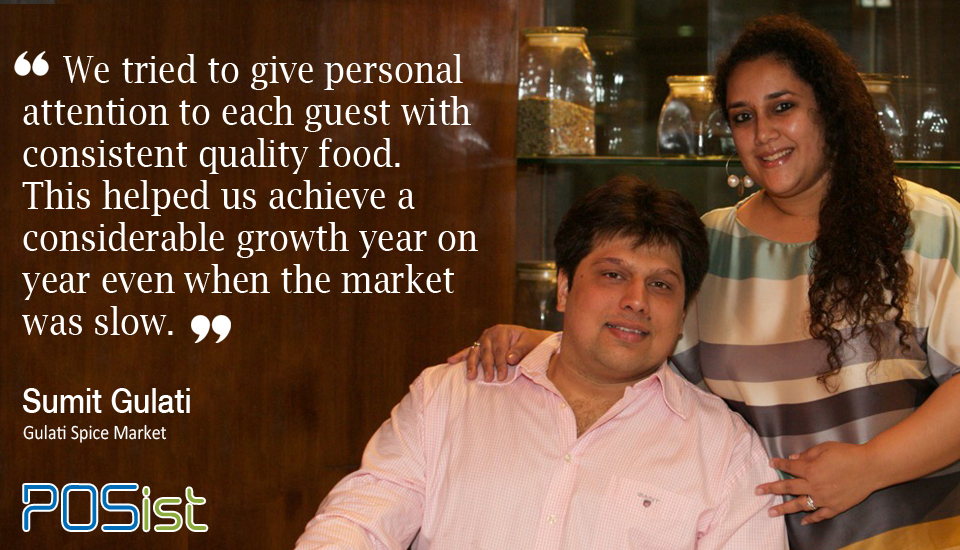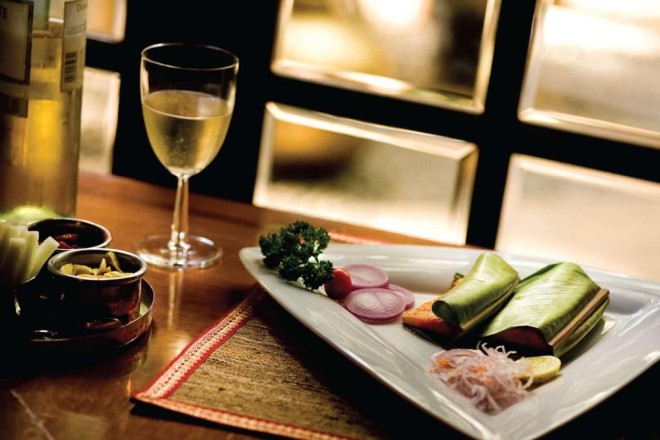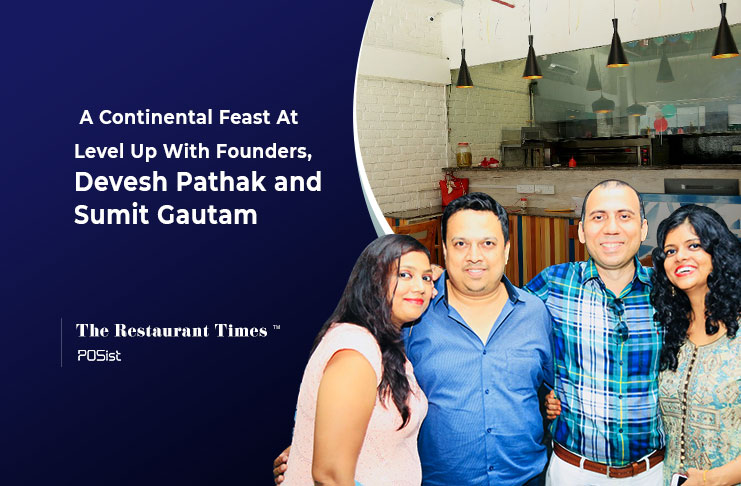Founded in 2008, Spice Market has come a long way through its eight years of journey. The popular restaurant has seen its share of highs and lows as well. Even in the face of struggles, Sumit Gulati, owner of Spice Market, kept going on. He patiently waited for almost two years but never let go the focus from the core values of the restaurant business, which ultimately resulted in a hockey-stick growth of the Spice Market.
Sumit Gulati Talks About How to Build A Successful Restaurant Brand
Sumit Gulati shares his experience and learnings with The Restaurant Times by Posist in an exclusive interaction. Edited Excerpts…
What was the idea behind Spice Market?
Spice market was started in 2008. When we saw the location, the place called for an Indian restaurant as it was an upcoming hub in South Delhi with malls, movie theatres, hotels and corporate offices etc. So Indian food seemed to be the best option over there. But we were very clear that we didn’t want to do only North Indian food in the name of Indian food. We already had Gulati’s at the Pandara road specializing in North Indian cuisine, which has been operational for more than five decades.
We wanted to offer a cuisine that speaks of India as a whole, with a lot of regional influences. We were inspired by the concept of actual “Spice Markets”, as the most prominent ingredients in Indian food are the spices, no matter which region. Each of the different regions in India has their own inherent spices. We based our menu on these different regional spices. That’s where the inspiration for the ambience came as well. ‘Spice market’ was a working title, but later, we thought it worked best as a Brand name as well.
How was the initial response to the restaurant?
We saw a lot of highs and lows; mostly lows at our initial stage. Right after we opened doors in May 2008, the stock markets & real estate crashed leading to recession. There were also a couple of terrorist attacks in Delhi and Mumbai that year, which led to a very lean tourist season. Our whole business plan & forecasting went for a toss. It was a very tough year to survive.
The rentals were very high and our bar license also took almost 2 years to come. We seriously considered shutting down at that time. But I’m glad we decided to hang around for a bit more, as the 2nd year was better and 3rd year even better.
How did you go through the year of slowdown? What has been your learning experience?
During the slowdown, we focused a lot on cost control; be it the food or staff. We kept our costs as low as possible. Chiquita and I ran all shifts ourselves and did not hire any managers until our 4th year.
The competition was such that most restaurants in our neighbourhood were giving huge discounts to corporates and other walk-in customers. We were convinced that this was not a sustainable practice. Instead, we tried to give personal attention to each guest with consistent quality food. This helped us achieve a considerable growth year on year even when the market was slow.
The key learning for us here was that patience is an extremely important virtue while building a brand. Secondly, there is no shortcut to perseverance. If you are dedicated to serving a great quality experience, you will surely get the customers who will find your product a good value for their money.
Before starting Spice Market. Were you involved with Gulati’s to get some experience before working on the real project?
After we completed our studies and acquired some international experience, my wife and I worked with my father at Gulati’s for a couple of years to get hands-on experience and learn from him. Gulati’s is my source of inspiration.
My father has been running it for more than 40 years. He keeps pushing us to do better and better. My father taught me not to give up and always do better than before.
Spice Market boasts of a PAN India cuisine. How have customers responded to this unique speciality restaurant?
Chiquita, my wife who also happens to be the Head Chef of Spice Market, and I travel regularly to different regions of India. We try the food, pick up the flavours and try to recreate them at Spice Market with our own interpretation. For example, we had loved Laal Maas on our travel to Udaipur and Jaipur. When we launched Spice Market initially, Lal Maas was the single most selling dish for 2-3 years. Now there are the authentic Hyderabadi Dum Biryanis, which our guests totally love. Of course, there are some dishes that don’t work, so we keep updating our menu every 4-6 months to bring new finds. We always knew there was a market for Pan-Indian Cuisine but nobody had tapped it, back in 2008. Nowadays, most of our customers are well-travelled and are willing to try something new.
You play around every possible cuisine at your restaurant. How many SKUs you have at present?
Our menu is very precise now compared to the time when we started. We have almost shrunk our menu to less than half in the last 8 years, the primary reason being able to maintain the standards and authenticity of the food. A big menu is hard to maintain in terms of quality & freshness, which we do not compromise on.
Also, read Chiquita Gulati’s expert opinion on how to purchase the best knives for your restaurant here.

















